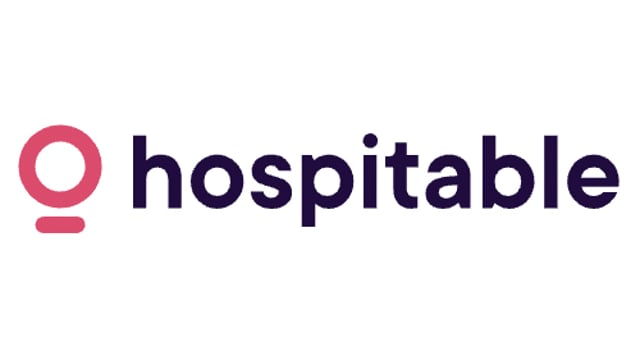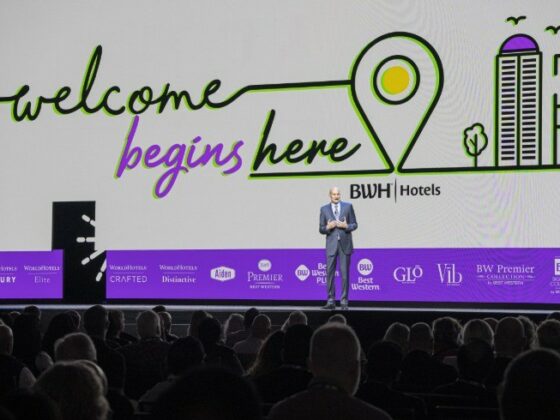
There is often an unspoken rule when it comes to payments in the hospitality industry: “Payment is complex, and that is just the way it is.”
It is true that hoteliers must deal with complexity. They tend to operate with multiple IT systems, including Central Reservation, Property Management and Revenue Management systems, which are not always fully integrated with a transversal payments approach. They must also deal with a wide range of payment methods in each territory they operate in. Unfortunately, this results in a complex and demanding payments network to maintain. Finally, hotels serve a diverse range of international guests who have different in-stay requirements, meaning that a variety of preferred payment channels and currencies need to be supported – be it online, at the property, or over the phone.
What stays consistent? Payments are interlinked throughout – and the ‘complexity’ involved is merely an industry construct that needs to change, for the betterment of the industry and to support the overall guest experience. Here are some of the options now available to hoteliers to simplify payments in hospitality and address complexity in the hospitality industry.
Payment Orchestration
What is orchestration? Well, it is emerging as a key theme for payments. The term refers to a single payment platform, or layer, which provides easy connectivity to the many providers needed to facilitate payments whilst optimizing the entire payment process. Payment orchestration can potentially reshape how hotels handle transactions by enhancing efficiency, reducing transaction failures, cutting costs, and increasing payment acceptance rates.
In hospitality, hotel chains operate in different regions, often with different payment acquirers in each – not to mention the more specialist services needed such as the integration to their booking system, tokenization, and fraud management. Building and managing connections to potentially several payment providers whilst achieving efficiency is a huge challenge that orchestration can help to solve.
In the airline industry, orchestration has been used to simplify the complexities associated with international payments. Today, hotels are also opting to leverage orchestration to unify all the required connections with a single, pre-built integration. This greatly reduces the cost and complexity associated with doing this in-house. More importantly, it provides increased flexibility, eliminating the risk of outages, and enabling ‘smart rules’ to route transactions based on geography or cost criteria.
No matter which payments partner is handling the transaction, an orchestration platform provides analytics that identify when routing or other payment processing aspects are going wrong, therefore improving acceptance and reducing fraud rates. It provides visibility into performance that helps a hospitality company to continually refine its approach to payments, according to its strategy.
Advanced payment orchestration ultimately enables hotel chains to manage centralized payments with the potential to boost online direct bookings and prepayments. By offering a seamless and secure payment experience, guests can book directly through the hotel’s website, increasing direct revenues, improving cash flow and securing transactions.
Embedding Payments into Hoteliers’ Ecosystems
Currently, payment gateways are used to bridge hospitality companies’ booking systems with the financial services firms that process payments. Payment providers are constantly challenged with the complexity of core systems used within the hospitality industry. This is problematic because it can impact payment acceptance rates and the overall effectiveness of a hotel’s commercial strategy.
Arguably, the number one issue for payment providers in hospitality is the quality of integration between the systems where sales are made and those that process payments. Selecting a payments partner that has a proven capability to connect to hospitality software will promote a consistent experience for guests from booking to checkout. As innovation continues in this sector, embedded payment services will continue to address the complexity known in the hospitality industry. At the same time, we will be delivering more flexible consumer payment interactions for our customers.
Innovating Commission Payments: A Catalyst for the Hotel Industry
Guests can also choose to find their accommodation using travel agencies: something that is commonplace today with the growth of online travel agencies. Traditionally, hotels have struggled to handle commission payments for these reservations, but there are innovative solutions to address these pain points. Virtual credit cards are a great way to streamline and simplify this process, while also automating the generation of invoices.
The Road to Guest-Centric Payments
Outpayce conducted research in 2022 which found that 40% of guests reported problems when making a payment at their hotel. This issue leads to a sense of heightened anxiety. “Will the hotel accept my card at the front desk? How will I settle the bill if not?” With these frequent questions in mind, our research indicated that people are twice as likely to experience feelings of anxiety and uncertainty’ when making a payment at their hotel compared to other settings.
Interestingly, the most reported issue was the inability to pay using their preferred payment method. As a hotel’s local payment system may not accept or support card and alternative payment methods, like PayPal or WeChat Pay, this remains a common frustration for the guest.
In line with these findings, a third of guests confirmed they had been unable to pay with their preferred payment method during a recent stay. Over half, or 54% of guests noted that it’s difficult to pay at a hotel, and 77% believed it is the hotel’s responsibility to make payment easier. From this research, it’s clear the hospitality industry’s efforts to deliver an excellent guest experience are at risk, and that the traveler is noticing this.
Fortunately, hotels are overcoming these challenges by enabling guests to pay digitally at the property. Rather than a traveler using a physical payment terminal, they can pay through the hotel’s app. Alternatively, the front desk can issue a payment link to the guest via email or SMS which takes them to a secure payment page.
What is the Future of Hospitality Payment Technology?
It is true that payments in hospitality have been more complex than other industries, but innovation means this situation is changing rapidly. Most of the traditional payments pain points for guests and hotels can now be overcome through seamless integration of diverse payment capabilities and increased availability of payment methods.
Hotels are now seeking flexibility and digitalization. New payment solutions support various guest profiles, meeting both business and leisure needs, whilst also driving more profitable direct bookings.
What we know now is that payments in the hospitality industry are an area that is full of opportunity: it doesn’t have to be complex. Whether it is the extended efforts being driven across the industry, the growing interest from hotels to adopt more cost-efficient payment solutions, or more advanced solutions to support contactless hotel operations and digitalization for the entire guest journey, the landscape is evolving.







